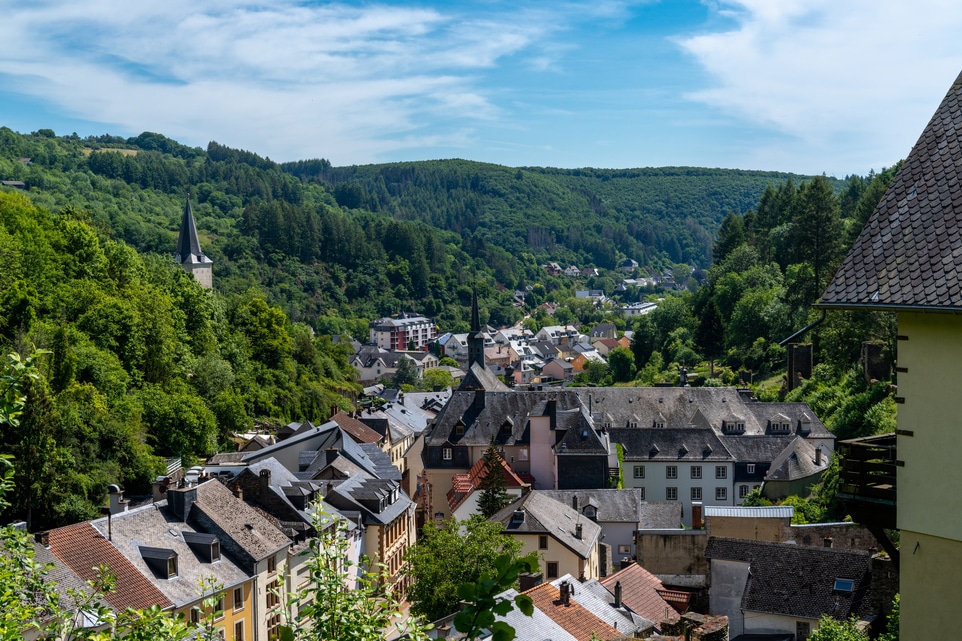Luxembourg, or the Grand Duchy of Luxembourg, is a small country in Western Europe with a population of around 660,800. Bordered by Belgium, Germany and France, the country covers an area of 2,586 km2, making it one of the smallest states in Europe. The country is home to a highly cosmopolitan population, many of whom are of Portuguese origin. Here’s an overview of the origins and history of Portuguese emigration to the Grand Duchy and the key statistics about the Portuguese in Luxembourg.
The Portuguese in Luxembourg: growth and key statistics
In Luxembourg, foreign residents account for 48% of the country’s total population. Most of them are Portuguese. According to the government website Luxembourg.public.lu, there were 93,678 Portuguese residents in 2021, representing 14.5% of Luxembourg’s total population.
The Portuguese community in Luxembourg has fluctuated over several decades. In 1970, the Portuguese accounted for just 1.7% of the total population in Luxembourg. At the beginning of 2018, there were 96,544 Portuguese – 16% of the total population.
The Portuguese population in Luxembourg is young overall. According to a study carried out by STATEC, the average age of Portuguese people living in Luxembourg is 36.7. The vast majority of Portuguese people live in the municipalities of Differdange (35.7%), Larochette (44.1%) and Esch-sur-Alzette (32.7%).
In 2022, the Grand Duchy welcomed 3,633 Portuguese nationals, which was a fall of -6.5% on the previous year (Source: L’Observatoire de l’émigration).
The history of Portuguese emigration to Luxembourg
Links between Portugal and Luxembourg date back to the end of the 19th century, with the marriage in 1893 of Prince William Alexander of Nassau (later William IV, Grand Duke of Luxembourg) to the daughter of the King of Portugal, Marie Anne of Portugal.
Luso-Luxembourg relations have continued to strengthen over the years. During the Second World War, when the German invasion of May 1940 toppled the sovereignty of the Grand Duchy, many Luxembourgers sought refuge in Portugal. However, at the end of the war, Portugal, which had been ruled since 1932 by an authoritarian regime headed by Oliveira Salazar, saw a large proportion of its population fall into poverty. In the 1950s, Luxembourg was facing a labour shortage and many Portuguese opted to emigrate to the Grand Duchy to escape the dictatorship and insecurity. However, as there was no agreement between the two countries at the time, immigration was mainly illegal.
A bilateral agreement on the employment of Portuguese workers in Luxembourg was finally ratified in 1972. This agreement stabilised the situation for illegal immigrants and made it easier for Portuguese nationals to find work in Luxembourg.
Portugal has maintained close ties with Luxembourg for more than 80 years. Many Portuguese who have settled in the Grand Duchy have adopted the nationality of their adopted country: over the last 10 years, Luxembourg has recorded 12,800 naturalisations of Portuguese nationals, according to the Luxembourg.public.lu website.
Are you planning to move to Luxembourg?
Our translation agency offers translation services in almost a hundred languages, including English to Portuguese, German to Portuguese, French to Portuguese and vice versa. We use highly experienced translators specialising in different types of translation (medical, legal, commercial, financial, etc.). We can also provide sworn (certified) translations (identity cards, birth certificates, marriage certificates, etc.).





